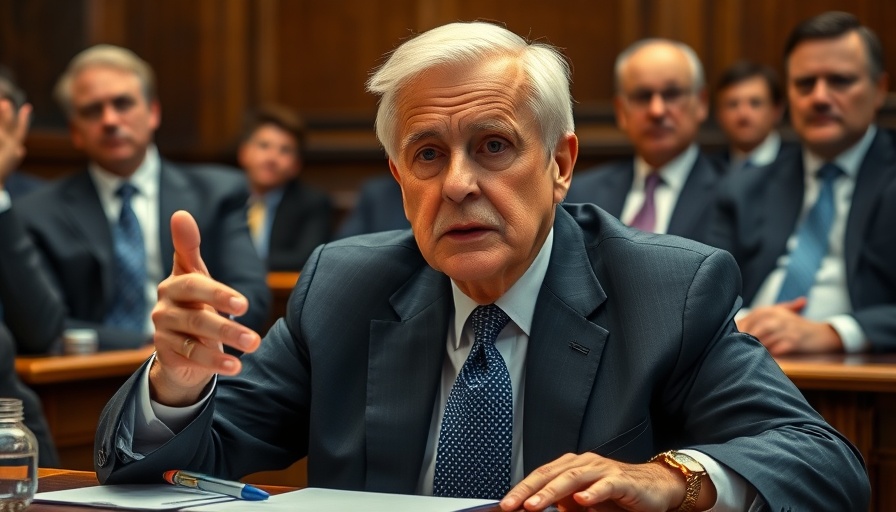
Revisiting Concerns: Trump's Mental Clarity Under Scrutiny
Recently, President Donald Trump sparked renewed discussions about his mental acuity after a curious incident during a press conference. Following a discussion with Health Secretary Robert F. Kennedy Jr., Trump almost exited the Oval Office without signing a crucial executive order designed to help reduce prescription drug costs. Though he eventually turned back to complete the signature, the moment has left many questioning his mental state and capability.
Social Media Reactions: Amplifying the Doubts
The incident quickly circulated on social media, with users voicing their concerns about Trump’s mental fitness. Some questioned, "Is he OK?", while others pointed out that this is not the first occurrence that has raised eyebrows about the President's cognitive ability. Such incidents have previously led to nicknames like "Dementia Don" among his critics, drawing parallels to how Trump supporters labeled Biden as "Sleepy Joe". This duality reveals the hyper-political environment where mental acuity seems to be a constant topic of contention.
The Role of Mental Health in Leadership
The concerns about Trump's mental acuity prompt a larger discussion on the importance of mental health in leadership roles. An individual’s mental clarity can significantly impact decision-making and effectiveness. Leaders with high emotional intelligence and mental fortitude can navigate complex political landscapes more effectively. This raises the question - how can voters and policy-makers ascertain a leader's mental health beyond political narratives?
Comparative Analysis: Trump vs. Biden's Mental Capacity
While Trump faces ongoing scrutiny over his mental health, similar concerns have been directed toward President Joe Biden in the past. This cyclical questioning about mental acuity among the leaders can detract from substantive policy discussions and shift public focus toward speculation instead. Both political sides have utilized these narratives strategically in election campaigns, often leading to a culture of ridicule and personalization rather than constructive criticism.
Addressing Stigma Around Mental Health in Politics
As we navigate these turbulent political waters, it’s vital to recognize and address the stigma surrounding mental health. Leadership demands resilience, and society needs to collectively challenge the narrative that mental health struggles equate to incompetence. Encouraging public discourse and education about mental health can foster a healthier political climate where leaders and citizens alike feel supported in discussing mental wellness.
The Way Forward: Building a Mentally Resilient Society
Moving forward, understanding the dynamics of mental health—whether in leadership or our personal lives—is crucial. Initiatives promoting mental clarity through wellness practices, stress management techniques, and healthy lifestyles can help. Engaging in meditation, yoga, or fitness routines can enhance overall mental resilience, helping citizens to build a stronger community. Emphasizing these aspects might also reflect positively on how we view our leaders and their capacities.
 Add Row
Add Row  Add
Add 




Write A Comment